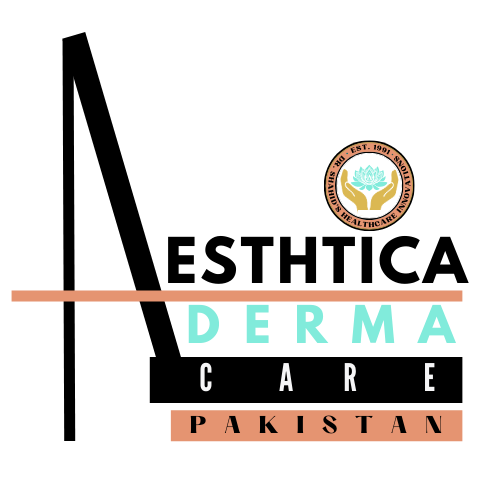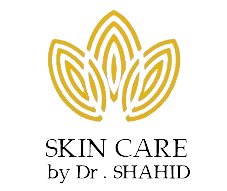


Chelation is the process by which a drug, such as edetate disodium (disodium EDTA) can “grab” metal ions from the blood and allow you to excrete them in the urine. You are being offered this treatment because you have atherosclerotic disease and/or heavy metal poisoning. It is being administered all over the world (USA, CANADA, EUROPE, ASIA) since 1945. A recent new study, TACT, however, suggests that, for patients like yourself, there may be a benefit of up to 50% reduction in “primary events” such as death, bypass surgery and MI. So in spite of the general medical belief that this treatment is ineffective, your treating physician believes that this treatment may have benefit for you. You should continue all other standard treatments for your condition. Chelation therapy does not replace any of them at this time and still is considered “alternative and complementary” medicine.
2. Benefits of CHELATION THERAPY & GLUTATHIONE IV PUSH in ATHEROSCLEROSIS, Heart Diseases, Kidney diseases, Diabetes, Hypertension, Stroke, Brain Hemorrhage, Paralysis, Alzheimer’s Disease, Neuropathy, Detoxification, Autism, Memory and concentration defects, Macular Degeneration, Heavy Metal Toxicity (lead poisoning and mercury poisoning).
3. Glutathione IV PUSH is internationally recognized to be given after the Chelation Therapy to have compounded benefits of CHELATION THERAPY.
4. What are my responsibilities?
As a chelation patient you are required to do the following:
– Allow at least 4 hours for each infusion visit.
– Bring your vitamins to the first visit and any new ones you start during tx
– Take the vitamins twice per day during the infusion and follow-up periods.
– On the day of your infusions, take your assigned vitamins 3-5 hours after your infusion.
– Continue taking all other medications for your heart disease and other conditions as prescribed by your physician.
5. YOU MUST FOLLOW the FOLLOWING INSTRUCTIONS
-You must bring some snacks with you since there may be hypoglycemia and lowers blood sugar
-You must not take extra Insulin on the day of Chelation Therapy
-Since there is low blood pressure after the chelation therapy administration, and this may cause dizziness on standing (postural Hypertension). So, you must stay for about half an hour after the drip and Glutathione IV Push
-If you are taking Lasix you must inform the doctor before the chelation therapy
6. How will chelation be used in you?
Chelation therapy, as used in this treatment plan, consists of up to 40 treatments through a vein in your arm (infusion) of a solution of edetate disodium, vitamins minerals, and other drugs listed below. Edetate disodium binds metals that are dissolved and circulating in your blood. These elements, known as heavy metals, include lead, cadmium, antimony, and tungsten, and have been shown in studies to contribute to the development of heart disease. Although the Food and Drug Administration (FDA) has not approved chelation therapy as an effective treatment for heart disease, chelation therapy has been practiced in the community for many years. The chelating drug used is edetate disodium, also known as disodium EDTA. This is similar to, but not the same drug approved by the FDA for use in cases of lead poisoning. The use of disodium EDTA as treatment for heart disease or hardening of the arteries in patients that have suffered a heart attack has never been an approved indication for the drug.
The present clinical practice of chelation therapy also involves the use of high-dose antioxidant vitamins, minerals, and nutritional supplements taken by mouth. However, as with chelation therapy, conventional cardiology does not accept that these oral supplements will be good for you, but your physician will guide you to the supplements you need.
The components of the intravenous infusions are:
Additive
Role of Additive
EDTA, Magnesium, Vitamins and Anti-Oxidants Chelating agent
To reduce local discomfort and replace losses
To reduce local discomfort
To reduce local inflammation of veins
Vitamin C
To replace losses
To act as a buffer and reduce discomfort
For anti-oxidant properties
For anti-oxidant properties
To replace chelation losses
You will receive your first 30 infusions weekly or biweekly, and additional “maintenance” infusions 2 weeks to 2 months apart (minimum of 10). You will be monitored with blood and urine tests to make sure there are no problems detected that could increase risk to you including but not limited to those described below.
If you are a woman and are able to become pregnant, you are not eligible to receive chelation therapy.
7. Are there any risks or discomforts?
This treatment may cause the side effects listed below. However, there may be some side effects that we cannot predict. BUT ALL SIDE EFFECS ARE IMMEDIATELY TREATABLE as with any other vitamin injections
Disodium EDTA, or edetate disodium USP, is in the chelation solution. It binds heavy metals like lead, cadmium, antimony and tungsten and allows them to be excreted in the urine. For some people we use Ca EDTA if there is lead in the blood.
EDTA rarely may cause allergies, or kidney problems. EDTA also binds to calcium in blood. Symptoms of low blood calcium, such as tingling, muscle cramps, lightheadedness, severe muscular spasms, heart rhythm problems, and low blood pressure may occur with a rapid infusion, and rarely, with a correctly-administered infusion. You will be monitored carefully for these side effects.
The infusion will be monitored closely so it does not go in too quickly, and your blood pressure will be checked before, during, and after the infusion. If your kidney function is not good, you will not be allowed to receive chelation. If your kidney function gets worse during the infusions, then the dose of EDTA will be reduced, or the infusions will be stopped. As part of monitoring your kidney function, you will need to inform your physician if you do not urinate for 12 hours.
You may develop flu-like symptoms such as low-grade fevers, sneezing, muscle and joint aches, headaches and watery eyes. These symptoms may occur 4 to 8 hours after receiving the infusion. These symptoms are usually seen when high doses of EDTA are given, or if the infusion rate is too rapid. Patients with diabetes have been reported to sometimes develop low blood sugar during the infusion. For this reason, if you are diabetic, we will ask you to snack before the infusion, and monitor you for symptoms of low blood sugar.
During the infusions, you may experience a “burning-like” sensation at the site of the infusion, or through the vein. Certain medications (such as magnesium and a local anesthetic) are added to the solution to reduce this discomfort.
EDTA has the ability to remove certain vitamins and minerals that are needed by your body. The oral vitamins and minerals that are part of this treatment replace these elements. Although the risk of removal of these minerals is small, this can cause symptoms such as fatigue, dry skin, tingling sensation in your hands and feet, a skin rash, diarrhea, and constipation. EDTA also may reduce the effectiveness of some of the medications you are taking.
As described earlier, magnesium chloride and potassium chloride are included in the infusion solution. Magnesium and potassium are essential salts that are components of all cells in the body. Potassium can cause burning at the site where the intravenous line is placed. However, there are no other likely side effects expected from the doses to be infused.
Vitamins B1, B6, pantothenic acid, and vitamin C also are included in the infusion solution. These essential vitamins have no significant side effects. However, vitamin C is being used at a higher dose than usual, and can be associated with kidney stones.
Heparin, also included in the infusion solution (optionally), is a commonly used blood thinner that is used to prevent clotting of the vein used for the intravenous infusion. The principal side effect of heparin at the doses used in this infusion is an allergy that could lead to bleeding or blood clots. You will be closely monitored for this, and the heparin will be stopped if an allergy seems to occur.
Procaine, also included in the infusion solution optionally, is a local anesthetic that will prevent stinging or discomfort during the intravenous infusions. The main side effect is the possibility of allergy. Sodium bicarbonate is a naturally occurring substance that increases the ability of the kidney to excrete impurities. It is included in the infusion solution.
If your heart is weak, you may be at risk of developing fluid in your lungs, swelling in your ankles, or rapid weight gain. This fluid accumulation is also known as heart failure, and is a result of the heart’s inability to tolerate the amount of fluid that will be infused. Your weight will be monitored to make sure you are not accumulating fluid. If your doctor determines that your weight gain is related to the infusions, the infusions will be temporarily stopped. Additionally, your doctor may determine it is necessary to give you a diuretic (water pill) in order to prevent any further fluid from accumulating in your lungs that may lead to shortness of breath. People who already have a history of decreased heart function will be at greater risk. If you have had fluid in your lungs due to a weak heart within the last 6 months, you will be given half the fluid.
Since chelation therapy is given intravenously, you will have some discomfort at the needle puncture site. There is also a risk of bruising, swelling, and redness developing at the site of the intravenous infusion. Rarely, a serious blood infection may develop that would require antibiotic treatment. It is very important for you to report any pain, swelling, or redness at the site of the needle punctures, as well as any fever or chills, so you may be promptly treated. You may also experience these discomforts when having your blood drawn.
The anti-oxidant vitamin, mineral, and nutrient supplements taken by mouth are generally well tolerated, taken by millions of people, and have low risks of serious side effects. Beta-carotene, however, one of the supplements used, has been associated with a higher rate of cancer in patients who smoke. Smokers are usually not eligible to receive chelation in official studies but exceptions will be made in this setting, However it is very important to stop smoking as soon as possible.
Death can very rarely occur with chelation therapy, if the infusion is given very rapidly, over seconds or minutes. For this reason, we will monitor the rate of your infusion to make sure that it does not go in faster than over 3 hours.
Finally, there does remain the risk of serious unanticipated side effects that we cannot predict as with any other treatment protocols of medicine
If you have any questions about the risks or discomforts, contact __________________________________ which is a 24-hour phone number answered by a service after hours.
8. What other choices do I have if I don’t want this treatment?
Your other cardiac treatments as directed and recommended by your doctor will not be affected.
9. Will I need to pay for the tests and procedures?
You are responsible for all costs of this treatment.
7. I HAVE READ THIS CONSENT FORM AND HAVE BEEN GIVEN THE OPPORUNITY TO DISCUSS AND ASK QUESTIONS ABOUT THIS TREATMENT. I WILL ALSO RECEIVE A SIGNED COPY OF THIS CONSENT FORM AND AGREE THAT I WANT TO RECEIVE THIS TREATMENT FOR MY CONDITION.
Printed Name, Address & Telephone No.
of Patient:
_______________________________ ________________________________
Signature of Patient Date/Time
_______________________________
_______________________________
_______________________________
_______________________________ ________________________________
Printed Name of Witness Date/Time Signature of Witness Date/Time

